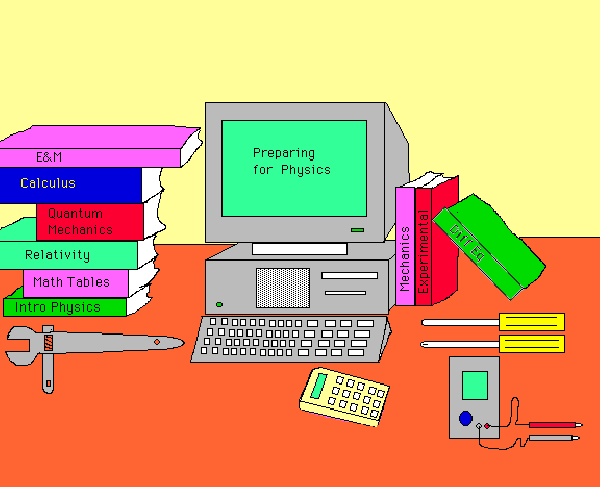How Do You Prepare for a Physics Major?
Preparation may begin as early as the day you drop your rattle from the high chair to see how much noise it makes. Or you can decide late in life to be a physicist.
There are examples of very sucessful physicists who started very late. But these people are the exceptions. The best plan is to start preparing while in high school.
But how can you best prepare for a program that requires so much of your talents?
Generally speaking, the most effective preparation seems to be to take as much mathematics in high school as you can. Certainly two years of algbera and trigonometry, a year of geometry, and whatever calculus is offered. Indeed, the best career advice we can give for any career seems to be take as much mathematics as possible. Habits of disciplined thinking are very useful.

Beyond the mathematics, take as much science as you are able. Not just physical sciences but any of the sciences that are interesting to you.
Physics is primarily asking questions … and then finding ways to answer those questions. Any academically rigorous course is good preparation. A challenging course in literature may be better preparation than a course in science which does not stretch you.
High school is a good time to learn how to learn. Develop your reading, note taking, and study skills (see the main study skills page) so that you very accomplished at these tasks by the time you get to college. Pushing yourself a little harder in high school may make the first year or two in college eaier.
Can you do well without all of this preparation?
Yes.
Will you have to work harder if you do not have this preparation?
Yes. But it can be done.
Some very thoughtful advice is given by MIT at http://www.mitadmissions.org/topics/before/recommended_high_school_preparation/index.shtml and the Preparing for a Career in Physics page from the APS. Another source for preparing for college is
Building Toward a Better Future: A College Planning Guide for Students and Their Families from the Department of Energy. (Formación para un Futuro Mejor: Guía de Planificación Universitaria para Estudiantes y Sus Familias).
You should also check the admission requirements of schools you will likely attend as well as those much harder than those. Other advice is given in books on preparing for college which the schools or libraries near you may have available. An example is The Latino Student’s Guide to College Success, edited by Leonard Valverde (Greenwood Press, 2002) but there are many other good guides.
And finally discuss your plans with your teachers and counselors and also the admission departments of schools you will likely attend.
Back to the Student Gateway Page
